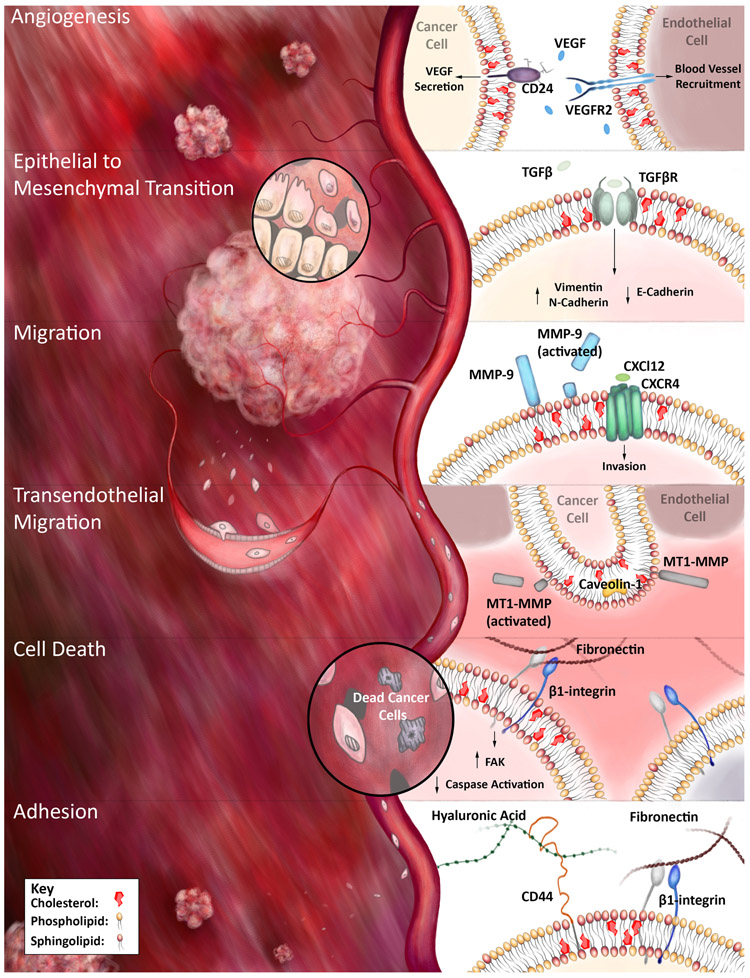Lipid rafts are microstructural domains packed tightly in the plasma membrane and rich in cholesterol and sphingomyelin, which play an important role in many pathophysiological processes. Previously, researchers thought that the lipid raft structure is the main regulator of cancer signal transduction, in which the compartmentalization of lipid rafts promotes the oligomerization of transmembrane receptors and protects proteins from enzyme degradation. It can also be used as a scaffold to enhance intracellular signal cascade transduction. Now researchers have found that cancer cells can turn on carcinogenic signal transduction and promote tumor progression with these mechanisms.
Recently, in a study entitled “Rafting Down the Metastatic Cascade: The Role of Lipid Rafts in Cancer Metastasis, Cell Death, and Clinical Outcomes”, scientists investigated whether a naturally occurring protein in immune cells called TNF-related apoptosis-inducing ligand (TRAIL) can effectively kill colon cancer cells. The findings may help develop new treatments that make it easier to kill invasive cancer cells before they spread to other parts of the body.
Lipid rafts play an important role in cancer cell metastasis and cell death. (Cancer Research)
The researchers found that TRAIL effectively killed these drug-resistant colon cancer cells that carry a large number of special proteins called death receptor 4 (DR4). When TRAIL binds to these receptors, it causes cell death. In addition, DR4 are more likely to accumulate on the lipid rafts of the cell membrane. When the researchers found these receptors in the lipid rafts, TRAIL was able to kill cancer cells more effectively. With this mechanism, King et al., designed nanoparticles coated with TRAIL, which can kill 57% of cancer cells in the blood of patients with advanced colon cancer who are resistant to chemotherapy. In blood samples from some patients, the nanoparticles can even destroy all detected cancer cells, which may be related to high levels of DR4 on lipid rafts in these patients.
When colorectal cancer cells spread to other organs, patients need to receive chemotherapy. Although chemotherapy can successfully kill cancer cells in early treatment, more active cells become resistant to therapy and form novel deadly tumor tissue. The researchers said that these findings are important for colorectal cancer patients who have failed chemotherapy as they often do not have many therapeutic options, and the use of TRAIL-coated non-toxic nanoparticles may effectively improve the treatment of these patients.
Subsequently, more studies need to be conducted to change the lipid rafts of cancer cells, thus affecting their interaction with death receptors to increase the therapeutic benefits of TRAIL. The long-term goal of researchers is to bring the study into the clinic, but the first thing is to verify the therapeutic efficacy of TRAIL-coated nanoparticles in preclinical models.
In general, lipid rafts and lipid raft components play a complex role in cancer metastatic cascade signal transduction, which is essential for the development of new therapies to curb cancer metastasis.

